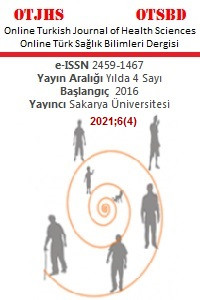Research Article
Case Report
Letter to Editor
Issue Editorial Board
Prof. Dr. Oğuz Karabay üniversite öğrenimini Trakya Üniversitesi Tıp Fakültesinde 1992 yılında tamamladı. Aynı fakültenin Enfeksiyon Hastalıkları ve Klinik Mikrobiyoloji Anabilim Dalında 1997 yılında uzmanlığını aldı. Uzmanlık sonrasında Beykoz Devlet hastanesi ve Düzce SSK Hastanesinde çalıştı. 2003 yılında Abant İzzet Baysal Üniversitesinde yardımcı doçent ve 2006 yılında Doçent ünvanı aldı. 2008 yılında Sakarya Eğitim ve Araştırma hastanesinde klinik şefi ve kurucu Başhekim olarak atandı. 2011 yılında Sakarya Üniversitesi Tıp Fakültesi Enfeksiyon Hastalıkları Anabilim Dalı Profesör kadrosuna atandı. 2014-2016 yılları arasında Tıpta Uzmanlık Kurulu üyeliği ve Hastane Enfeksiyonları Danışma Kurulu üyeliği yaptı. 2012-2020 yılları arasında Sakarya üniversitesi Sağlık Bilimleri Enstitüsü müdürlüğü yaptı. 2020-24 yıllarında Sakarya Üniversitesi Tıp Fakültesi Dekanlığı görevini yaptı.
İlgi alanları, kronik hepatitler, Antibiyotik yönetimi ve HIV/AIDS oluşturmaktadır. Türkiye Enfeksiyon Hastalıkları Derneği (EKMUD) ve Viral hepatitle savaşım derneği olmak üzere birçok ulusal ve uluslararası derneğe üyedir. Uluslararası indekslerde taranan 310 yayını, 13 kitap ve kitap bölümü, 4 adet patenti bulunmaktadır.
Oğuz Karabay evli ve üç çocuk babasıdır.

Medical Biology, Molecular Biology, Genetics
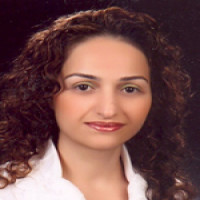
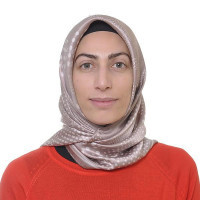



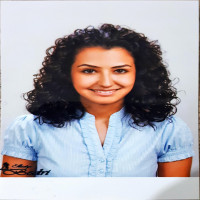


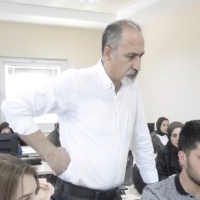
Aim & Scope
The scientific journal, Online Turkish Journal of Health Sciences (OTJHS), aims to share scientific studies performed in national and international issues in health sciences with scientists, experts and public.
The scope of the journal includes, but not limited, national and international original articles, reviews, case reports and short papers written in the fields of Medicine, Pharmacy, Dentistry, Nursing, Midwifery, Sports Sciences and other areas related to human health.
Author Guidelines
The articles must be written in English or Turkish. The manuscript should be submitted in Microsoft Word format with the following content;
I. Letter to Editor: The category of the submitted article, the name of the person or organization that financially supports the work, if any, and the affiliation of these organizations with the authors, if any, before the publication of another journal.
II. A cover page with author information: The title (Turkish and English) should be simple and clear . The names (First Letter Uppercase), surnames (All capital letters), their institutions and city in must be included in this page. Institution information should be indicated with a superscript number before the name of the author, and the information of the institution, city and country should be written below in front of this superscript number. In this page, corresponding author' name, full address, institution / mobile phone number and e-mail address should include. All authors' ORCID IDs must be added to the title page with the https extension. Example: Suleyman Kaleli: https: //orcid.org/0000-0002-6043-2521
NOTE: A maximum of 3 authors should be included in review articles and case reports.
III. Main Text
Abstract: The length of the abstract in Turkish or English should be maximum 200 words for research articles and maximum 150 words for other articles. Abstract for the research article should include the Objective, Materials and Methods, Results, and Conclusion. Abstract for review and case report articles should be written in one paragraph, without headings. Keywords consisting of at least 3 (three) and at most 5 (five) should be written with a space between the digits. Keywords should be compatible with Index Medicus, Medical Subject Headings and Turkish Scientific Terms Dictionary and should be written in alphabetical order. The main text should include the title of the manuscript in Turkish and English, as well as Turkish and English abstracts.
Note: The Turkish abstract and title of article submitted from outside Turkey can be translated free of charge by Editorial Team of the journal.
Main Text: Technical terms, symbols and abbreviations should be defined in the first use of the article. All sections must be numbered and formatted in order. The introduction should be no more than 400 words. In total, the research article should not exceed 2500 words, the review article should not exceed 3000, and the case report should not exceed 1500 words. In research that requires ethics committee approval, information about the permission (board name, date and decision number) in the first paragraph of the Materials and Methods section, as well as on one of the first/last pages of the article; In case reports, information about signing the informed consent/consent form should be included in the article.
Research article format; (Information in the main text page)
TITLE OF THE ARTICLE
ABSTRACT and Keywords
INTRODUCTION
MATERIALS AND METHODS
RESULTS
DISCUSSION AND CONCLUSION
REFERENCES
Tables and figures (Where it should be in the Results Section)
Case presentation format; (Information in the main text page)
TITLE OF THE ARTICLEABSTRACT and Keywords
INTRODUCTION (too short)
CASE REPORT
DISCUSSION AND CONCLUSION
REFERENCES
Tables and figures (Where it should be in the Results Section)
Review article: Invited review articles will be accepted.
Page Structure and Format: All manuscripts submitted to the journal for publication should be prepared in MS Word files at the following format; (MSWord template).
• The entire text should be written in justified Times New Roman format with 12 type size and one and a half lines spacing.
• The length of the article, including all sources, tables and figures, should be at least 4 (four) and at most 15 pages.
• The total number of tables, figures, graphics and photographs should not exceed 5 (maximum 5). Lines and columns of tables should be drawn.
Ethics Committee Approval: The permission from Ethics Committee/ Institutional Review Board is mandatory for all studies on human subjects. "Documents and information requested for studies requiring ethics committee permission" should be uploaded to the system. Ethics committee approval certificate should be uploaded to the system for scientific studies except case report / series and review articles. In case reports, informative volunteer / consent form should be included in the article. In studies requiring ethical committee permission, information about the authorization (board name, date and number) should be included in the method section and also on the first / last page of the article. However, in the Material and Method section, "Declaration that the study has been carried out in accordance with international declaration, guidelines etc." description should be included. In which cases is ethical approval required? Click!
When presenting findings, statistical tests and p-values should be included as well as measures defining effect size (such as relative risk, odds ratio). Statistical terms, abbreviations and symbols should be defined. The computer program used must be specified.
V. References: The number of references
should be maximum 10 for the case report, maximum 30 for the research articles and no limit for
the review articles. The following short
descriptions contain information frequently referred to by the American Medical Association (AMA) resource
format. Click for the style file.The references should be
numbered according to the first pas sequence in the text and the reference numbers should be listed in the references section in automatic numerical order. The references in the text
should be added as shown in the following examples at the end of the
citation as a superscript with the Arabic number.
Diabetes mellitus is associated with a high risk of foot ulcers.1-3
Several interventions have been held at increasing compliance.11,14-16
The data of Smith et al.18 is further evidence of this effect.
As reported previously,1,3-6
Examples for References: Author names
should be written in reverse order and only initials of the first and middle
names without spaces. Only the first
word should be capitalized except in special abbreviations in the article
headings in the Welder. Abbreviations
in Index
Medicus should be used in journal titles. Page ranges should be written in full.
1. Journal articles (1-6 author):
Hu P, Reuben DB. It is important to note that during the course of the ambulatory visits. Med Care. 2002;40(7):606-613.
3- Journal articles with DOI numbers:
If there is a page number: Fontanarosa P, Bauchner H. Conflict of interest and medical journals. JAMA. 2017;317 (17):1768-1771. doi:10.1001 / jama.2017.4563
If the article ID number / article number is available: Ammar A, Brach M, Trabelsi K, ve ark. Effects of COVID-19 home confinement on eating behaviour and physical activity: Results of the ECLB-COVID19 international online survey. Nutrients. 2020;12(6):1583. doi:10.3390/nu12061583
If the page number is no available: As AK, Engin M, Türk T. Early-term results of early coronary artery bypass graft surgery in patients undergoing primary percutaneous coronary intervention due to acute coronary syndrome. Eur Res J. 2020. doi:10.18621 / eurj.593369
9.Theses:
Yürümez Y. Organoprotective effects of interleukine-10 experimental organophosphate poisoning in rats. Erciyes University, Faculty of Medicine, Department of First and Emergency, Master, Doctorate or Expertise/Specialist Thesis. Kayseri, Turkey. 2003.
Technical information for images: Image presentations include image files containing colour or grey transitions or tones, such as microscope, electron microscopy, radiographic images, ECG and EEG transcripts.
Two original copies of the image must be sent; one must be accompanied by appropriate arrows and labels and markers on the image to describe the situation, and on the other hand there should be no original marking or explanation.
EPS
TIFF
Adobe Photoshop
JPEG (highest compression applied)
CHECKLIST
As part of the submission process, authors are asked to check compliance with all of the following clauses, and if they do not comply with these rules, submission files can be returned to the authors.
1. Editorial page
2. Cover Page
4. All authors signed "COPYRIGHT TRANSFER FORM" (PDF). Please click 6721/0a8f/a383/5d0165177bcdd.docx for Copyright Transfer Form.
5. Ethics committee approval document (PDF).
Copyright Notice: Authors who
publish their work in this journal have accepted the following terms:
a. The author retains the copyright of the work and presents the first publication right. The work is licensed under the Creative Commons Atrribution license, which allows the author to be identified and shared by others, provided that the initial release is made in this magazine.
c. Promote the sharing of authors' works on the internet (eg in an institutional database or on their own websites) before submitting the journal or during the shipment process; this can lead to both fruitful exchange of ideas and early and more referral to the work (see The Impact of Open Access).
Ethical Principles and Publication Policy
The publication of a peer-reviewed journal requires the continued work, responsibility, obligation and cooperation of the concerned parties: The concerned parties: Authors, Blind Reviewers, Editors and Board Members. Editors are responsible for maintaining and monitoring of ethics and keeping academic records.
The journal will allow the withdrawal or correction of articles if necessary. The journal is willing to publish corrections, explanations, withdrawals and apologies if necessary.
Price Policy
Processing and publication is free of charge. The journal is an open access journal and articles can be read and downloaded free of charge as well.






